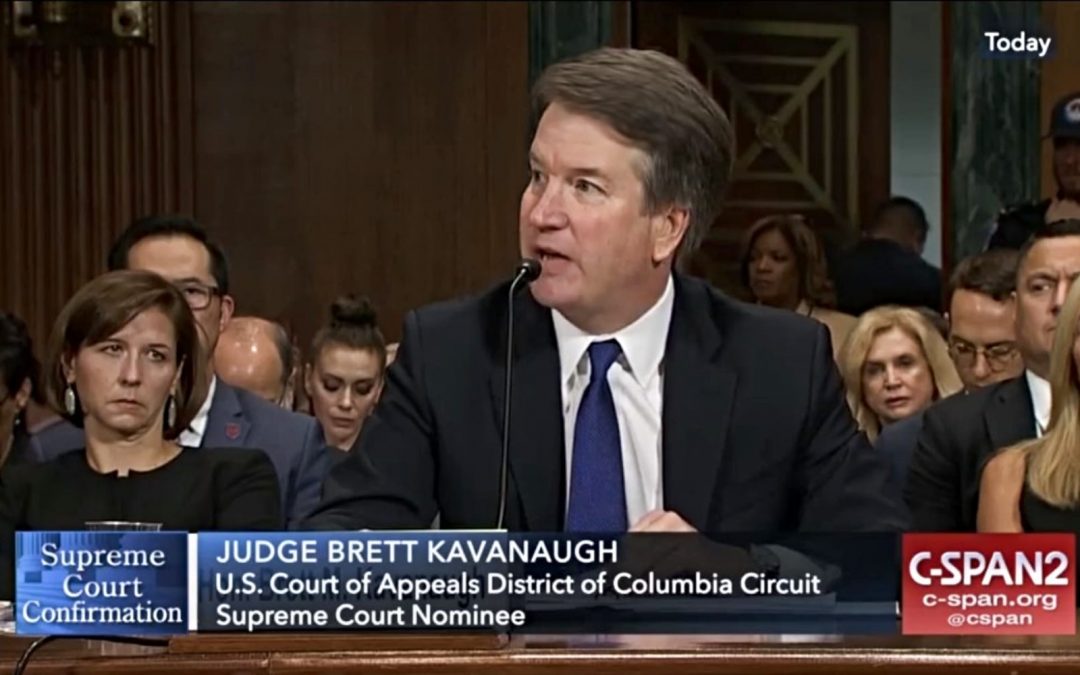Some texts give new insights each time you read them.
Maybe a poem expresses the quiet hope you experienced that morning. Perhaps you read a book with new eyes after entering a different period of life. Or maybe an old story could be painfully applicable due to recent events.
This is about the third. This is about a man in a position of power. This is about the woman he sexually assaulted. This is about David and Bathsheba. And, later, this is about Brett Kavanaugh.
King David is the frequent hero of Sunday School lessons. It seems that if lesson plans are not about Jesus or God, they are about David.
David is remembered for uniting Israel, conquering Jerusalem and being the patriarch of the Davidic line. However, David is also remembered for his wrongdoings to Bathsheba.
As a refresher, David saw Bathsheba bathing, took her, impregnated her, perhaps against her will, and then killed her husband. No consent is recorded being given or received.
Unfortunately for the spiritual and emotional health of many members of the church, Bathsheba has been portrayed as a temptress, a whore or the cause of David’s sin.
Whether implicitly or explicitly stated, the church’s reaction to Bathsheba speaks volumes about victim-shaming.
When a pastor speaks of Bathsheba as the perpetrator and David as the victim, how could that same church body affirm, recognize and grieve the pains of the women (and men) who have experienced sexual assault?
It can’t. This mentality damages the perception of women and slowly creates a toxic environment. While these issues can remain unseen for years, events such as those seen in the last month show their results.
While there were many frustrating and confusing aspects of the Supreme Court nomination hearings and confirmation of Brett Kavanaugh, what I found most shameful was the response of some Christian groups.
The implicit undertone of many conversations was that because Kavanaugh is a Christian, he is free of wrongdoings, and anyone who suggests otherwise is the spawn of the devil.
While I have a multitude of issues with this rhetoric, this view directly contradicts the fundamental reason for Christianity: We are sinful creatures living in a broken world. I sin. You sin. Kavanaugh sins. To suggest otherwise is to reject the gospel.
As it is written in 1 John 1:8-9, “If we claim to be without sin, we deceive ourselves and the truth is not in us. If we confess our sins, he is faithful and just and will forgive us our sins and purify us from all unrighteousness.”
Christians must remember that we are held to a higher standard, that of Jesus Christ.
Second, we must remember that we fail miserably in comparison to that standard. Our thoughts are self-centered, our loves disordered, our actions flawed.
Being Christian does not excuse our acts, neither past nor future. Being Christian does not exempt us from the judgment of others.
If anything, it invites it. We are inherently inadequate, but we know that Jesus is our advocate who redeems us from sin.
So how does the story of David and Bathsheba relate to Kavanaugh’s nomination? It reminds all of us that no leader is blameless, yet there remains hope that our leaders could still guide our country.
We will likely never have empirical evidence to determine if Kavanaugh sexually assaulted Christine Blasey Ford. However, we do know that Kavanaugh, just like the rest of humanity, is not without sin.
No perfect answers exist in this situation, but ample room exists for listening and discussion.
For those who are deeply pained by his nomination, stay diligent and keep hope. For those who gloat over his placement, have mercy on those who suffer.
And for all of us, may we pray for all who govern and hold authority in the nations of the world, that there may be justice and peace on the earth.
Editor’s note: This article is part of a new series focused on engaging the emerging generations of faith leaders. Learn more about EthicsDaily.com’s “Emerging Voices” and “U:21” series here.


